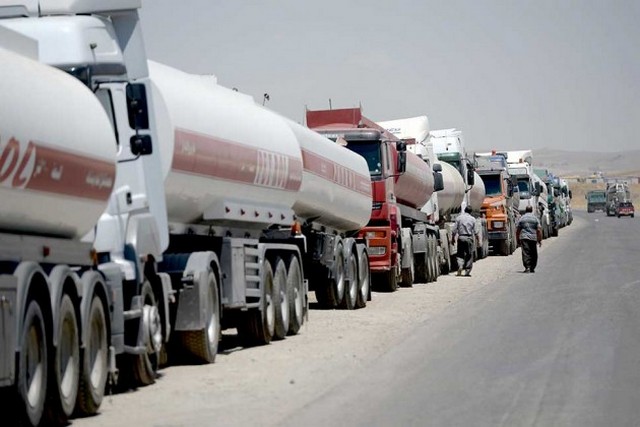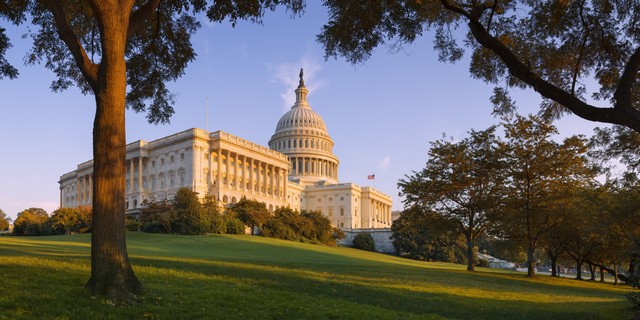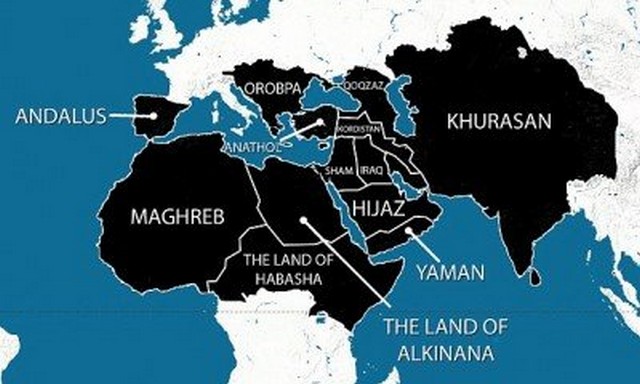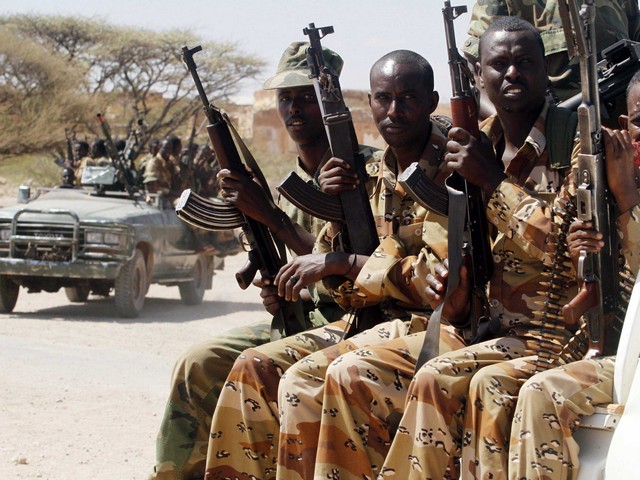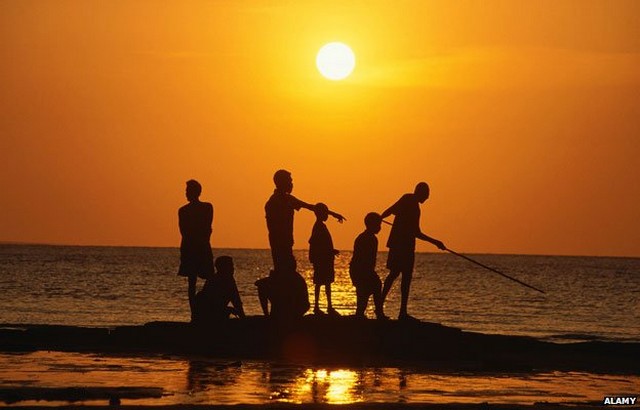By Noam Chomsky
The question of how foreign policy is determined is a crucial one in world affairs. In these comments, I can only provide a few hints as to how I think the subject can be productively explored, keeping to the United States for several reasons. First, the U.S. is unmatched in its global significance and impact. Second, it is an unusually open society, possibly uniquely so, which means we know more about it. Finally, it is plainly the most important case for Americans, who are able to influence policy choices in the U.S. — and indeed for others, insofar as their actions can influence such choices. The general principles, however, extend to the other major powers, and well beyond.
There is a “received standard version,” common to academic scholarship, government pronouncements, and public discourse. It holds that the prime commitment of governments is to ensure security, and that the primary concern of the U.S. and its allies since 1945 was the Russian threat.
There are a number of ways to evaluate the doctrine. One obvious question to ask is: What happened when the Russian threat disappeared in 1989? Answer: everything continued much as before.
The U.S. immediately invaded Panama, killing probably thousands of people and installing a client regime. This was routine practice in U.S.-dominated domains — but in this case not quite as routine. For first time, a major foreign policy act was not justified by an alleged Russian threat.
Instead, a series of fraudulent pretexts for the invasion were concocted that collapse instantly on examination. The media chimed in enthusiastically, lauding the magnificent achievement of defeating Panama, unconcerned that the pretexts were ludicrous, that the act itself was a radical violation of international law, and that it was bitterly condemned elsewhere, most harshly in Latin America. Also ignored was the U.S. veto of a unanimous Security Council resolution condemning crimes by U.S. troops during the invasion, with Britain alone abstaining.
All routine. And all forgotten (which is also routine).
From El Salvador to the Russian Border
The administration of George H.W. Bush issued a new national security policy and defense budget in reaction to the collapse of the global enemy. It was pretty much the same as before, although with new pretexts. It was, it turned out, necessary to maintain a military establishment almost as great as the rest of the world combined and far more advanced in technological sophistication — but not for defense against the now-nonexistent Soviet Union. Rather, the excuse now was the growing “technological sophistication” of Third World powers. Disciplined intellectuals understood that it would have been improper to collapse in ridicule, so they maintained a proper silence.
The U.S., the new programs insisted, must maintain its “defense industrial base.” The phrase is a euphemism, referring to high-tech industry generally, which relies heavily on extensive state intervention for research and development, often under Pentagon cover, in what economists continue to call the U.S. “free-market economy.”
One of the most interesting provisions of the new plans had to do with the Middle East. There, it was declared, Washington must maintain intervention forces targeting a crucial region where the major problems “could not have been laid at the Kremlin’s door.” Contrary to 50 years of deceit, it was quietly conceded that the main concern was not the Russians, but rather what is called “radical nationalism,” meaning independent nationalism not under U.S. control.
All of this has evident bearing on the standard version, but it passed unnoticed — or perhaps, therefore it passed unnoticed.
Other important events took place immediately after the fall of the Berlin Wall, ending the Cold War. One was in El Salvador, the leading recipient of U.S. military aid — apart from Israel-Egypt, a separate category — and with one of the worst human rights records anywhere. That is a familiar and very close correlation.
The Salvadoran high command ordered the Atlacatl Brigade to invade the Jesuit University and murder six leading Latin American intellectuals, all Jesuit priests, including the rector, Fr. Ignacio Ellacuría, and any witnesses, meaning their housekeeper and her daughter. The Brigade had just returned from advanced counterinsurgency training at the U.S. Army John F. Kennedy Special Warfare Center and School in Fort Bragg, North Carolina, and had already left a bloody trail of thousands of the usual victims in the course of the U.S.-run state terror campaign in El Salvador, one part of a broader terror and torture campaign throughout the region. All routine. Ignored and virtually forgotten in the United States and by its allies, again routine. But it tells us a lot about the factors that drive policy, if we care to look at the real world.
Another important event took place in Europe. Soviet president Mikhail Gorbachev agreed to allow the unification of Germany and its membership in NATO, a hostile military alliance. In the light of recent history, this was a most astonishing concession. There was a quid pro quo. President Bush and Secretary of State James Baker agreed that NATO would not expand “one inch to the East,” meaning into East Germany. Instantly, they expanded NATO to East Germany.
Gorbachev was naturally outraged, but when he complained, he was instructed by Washington that this had only been a verbal promise, a gentleman’s agreement, hence without force. If he was naïve enough to accept the word of American leaders, it was his problem.
All of this, too, was routine, as was the silent acceptance and approval of the expansion of NATO in the U.S. and the West generally. President Bill Clinton then expanded NATO further, right up to Russia’s borders. Today, the world faces a serious crisis that is in no small measure a result of these policies.
The Appeal of Plundering the Poor
Another source of evidence is the declassified historical record. It contains revealing accounts of the actual motives of state policy. The story is rich and complex, but a few persistent themes play a dominant role. One was articulated clearly at a western hemispheric conference called by the U.S. in Mexico in February 1945 where Washington imposed “An Economic Charter of the Americas” designed to eliminate economic nationalism “in all its forms.” There was one unspoken condition. Economic nationalism would be fine for the U.S. whose economy relies heavily on massive state intervention.
The elimination of economic nationalism for others stood in sharp conflict with the Latin American stand of that moment, which State Department officials described as “the philosophy of the New Nationalism [that] embraces policies designed to bring about a broader distribution of wealth and to raise the standard of living of the masses.” As U.S. policy analysts added, “Latin Americans are convinced that the first beneficiaries of the development of a country’s resources should be the people of that country.”
That, of course, will not do. Washington understands that the “first beneficiaries” should be U.S. investors, while Latin America fulfills its service function. It should not, as both the Truman and Eisenhower administrations would make clear, undergo “excessive industrial development” that might infringe on U.S. interests. Thus Brazil could produce low-quality steel that U.S. corporations did not want to bother with, but it would be “excessive,” were it to compete with U.S. firms.
Similar concerns resonate throughout the post-World War II period. The global system that was to be dominated by the U.S. was threatened by what internal documents call “radical and nationalistic regimes” that respond to popular pressures for independent development. That was the concern that motivated the overthrow of the parliamentary governments of Iran and Guatemala in 1953 and 1954, as well as numerous others. In the case of Iran, a major concern was the potential impact of Iranian independence on Egypt, then in turmoil over British colonial practice. In Guatemala, apart from the crime of the new democracy in empowering the peasant majority and infringing on possessions of the United Fruit Company — already offensive enough — Washington’s concern was labor unrest and popular mobilization in neighboring U.S.-backed dictatorships.
In both cases the consequences reach to the present. Literally not a day has passed since 1953 when the U.S. has not been torturing the people of Iran. Guatemala remains one of the world’s worst horror chambers. To this day, Mayans are fleeing from the effects of near-genocidal government military campaigns in the highlands backed by President Ronald Reagan and his top officials. As the country director of Oxfam, a Guatemalan doctor, reported recently,
“There is a dramatic deterioration of the political, social, and economic context. Attacks against Human Rights defenders have increased 300% during the last year. There is a clear evidence of a very well organized strategy by the private sector and Army. Both have captured the government in order to keep the status quo and to impose the extraction economic model, pushing away dramatically indigenous peoples from their own land, due to the mining industry, African Palm and sugar cane plantations. In addition the social movement defending their land and rights has been criminalized, many leaders are in jail, and many others have been killed.”
Nothing is known about this in the United States and the very obvious cause of it remains suppressed.
In the 1950s, President Eisenhower and Secretary of State John Foster Dulles explained quite clearly the dilemma that the U.S. faced. They complained that the Communists had an unfair advantage. They were able to “appeal directly to the masses” and “get control of mass movements, something we have no capacity to duplicate. The poor people are the ones they appeal to and they have always wanted to plunder the rich.”
That causes problems. The U.S. somehow finds it difficult to appeal to the poor with its doctrine that the rich should plunder the poor.
The Cuban Example
A clear illustration of the general pattern was Cuba, when it finally gained independence in 1959. Within months, military attacks on the island began. Shortly after, the Eisenhower administration made a secret decision to overthrow the government. John F. Kennedy then became president. He intended to devote more attention to Latin America and so, on taking office, he created a study group to develop policies headed by the historian Arthur Schlesinger, who summarized its conclusions for the incoming president.
As Schlesinger explained, threatening in an independent Cuba was “the Castro idea of taking matters into one’s own hands.” It was an idea that unfortunately appealed to the mass of the population in Latin America where “the distribution of land and other forms of national wealth greatly favors the propertied classes, and the poor and underprivileged, stimulated by the example of the Cuban revolution, are now demanding opportunities for a decent living.” Again, Washington’s usual dilemma.
As the CIA explained, “The extensive influence of ‘Castroism’ is not a function of Cuban power… Castro’s shadow looms large because social and economic conditions throughout Latin America invite opposition to ruling authority and encourage agitation for radical change,” for which his Cuba provides a model. Kennedy feared that Russian aid might make Cuba a “showcase” for development, giving the Soviets the upper hand throughout Latin America.
The State Department Policy Planning Council warned that “the primary danger we face in Castro is… in the impact the very existence of his regime has upon the leftist movement in many Latin American countries… The simple fact is that Castro represents a successful defiance of the U.S., a negation of our whole hemispheric policy of almost a century and a half” — that is, since the Monroe Doctrine of 1823, when the U.S. declared its intention of dominating the hemisphere.
The immediate goal at the time was to conquer Cuba, but that could not be achieved because of the power of the British enemy. Still, that grand strategist John Quincy Adams, the intellectual father of the Monroe Doctrine and Manifest Destiny, informed his colleagues that over time Cuba would fall into our hands by “the laws of political gravitation,” as an apple falls from the tree. In brief, U.S. power would increase and Britain’s would decline.
In 1898, Adams’s prognosis was realized. The U.S. invaded Cuba in the guise of liberating it. In fact, it prevented the island’s liberation from Spain and turned it into a “virtual colony” to quote historians Ernest May and Philip Zelikow. Cuba remained so until January 1959, when it gained independence. Since that time it has been subjected to major U.S. terrorist wars, primarily during the Kennedy years, and economic strangulation. Not because of the Russians.
The pretense all along was that we were defending ourselves from the Russian threat — an absurd explanation that generally went unchallenged. A simple test of the thesis is what happened when any conceivable Russian threat disappeared. U.S. policy toward Cuba became even harsher, spearheaded by liberal Democrats, including Bill Clinton, who outflanked Bush from the right in the 1992 election. On the face of it, these events should have considerable bearing on the validity of the doctrinal framework for discussion of foreign policy and the factors that drive it. Once again, however, the impact was slight.
The Virus of Nationalism
To borrow Henry Kissinger’s terminology, independent nationalism is a “virus” that might “spread contagion.” Kissinger was referring to Salvador Allende’s Chile. The virus was the idea that there might be a parliamentary path towards some kind of socialist democracy. The way to deal with such a threat is to destroy the virus and to inoculate those who might be infected, typically by imposing murderous national security states. That was achieved in the case of Chile, but it is important to recognize that the thinking holds worldwide.
It was, for example, the reasoning behind the decision to oppose Vietnamese nationalism in the early 1950s and support France’s effort to reconquer its former colony. It was feared that independent Vietnamese nationalism might be a virus that would spread contagion to the surrounding regions, including resource-rich Indonesia. That might even have led Japan — called the “superdomino” by Asia scholar John Dower — to become the industrial and commercial center of an independent new order of the kind imperial Japan had so recently fought to establish. That, in turn, would have meant that the U.S. had lost the Pacific war, not an option to be considered in 1950. The remedy was clear — and largely achieved. Vietnam was virtually destroyed and ringed by military dictatorships that kept the “virus” from spreading contagion.
In retrospect, Kennedy-Johnson National Security Adviser McGeorge Bundy reflected that Washington should have ended the Vietnam War in 1965, when the Suharto dictatorship was installed in Indonesia, with enormous massacres that the CIA compared to the crimes of Hitler, Stalin, and Mao. These were, however, greeted with unconstrained euphoria in the U.S. and the West generally because the “staggering bloodbath,” as the press cheerfully described it, ended any threat of contagion and opened Indonesia’s rich resources to western exploitation. After that, the war to destroy Vietnam was superfluous, as Bundy recognized in retrospect.
The same was true in Latin America in the same years: one virus after another was viciously attacked and either destroyed or weakened to the point of bare survival. From the early 1960s, a plague of repression was imposed on the continent that had no precedent in the violent history of the hemisphere, extending to Central America in the 1980s under Ronald Reagan, a matter that there should be no need to review.
Much the same was true in the Middle East. The unique U.S. relations with Israel were established in their current form in 1967, when Israel delivered a smashing blow to Egypt, the center of secular Arab nationalism. By doing so, it protected U.S. ally Saudi Arabia, then engaged in military conflict with Egypt in Yemen. Saudi Arabia, of course, is the most extreme radical fundamentalist Islamic state, and also a missionary state, expending huge sums to establish its Wahhabi-Salafi doctrines beyond its borders. It is worth remembering that the U.S., like England before it, has tended to support radical fundamentalist Islam in opposition to secular nationalism, which has usually been perceived as posing more of a threat of independence and contagion.
The Value of Secrecy
There is much more to say, but the historical record demonstrates very clearly that the standard doctrine has little merit. Security in the normal sense is not a prominent factor in policy formation.
To repeat, in the normal sense. But in evaluating the standard doctrine we have to ask what is actually meant by “security”: security for whom?
One answer is: security for state power. There are many illustrations. Take a current one. In May, the U.S. agreed to support a U.N. Security Council resolution calling on the International Criminal Court to investigate war crimes in Syria, but with a proviso: there could be no inquiry into possible war crimes by Israel. Or by Washington, though it was really unnecessary to add that last condition. The U.S. is uniquely self-immunized from the international legal system. In fact, there is even congressional legislation authorizing the president to use armed force to “rescue” any American brought to the Hague for trial — the “Netherlands Invasion Act,” as it is sometimes called in Europe. That once again illustrates the importance of protecting the security of state power.
But protecting it from whom? There is, in fact, a strong case to be made that a prime concern of government is the security of state power from the population. As those who have spent time rummaging through archives should be aware, government secrecy is rarely motivated by a genuine for security, but it definitely does serve to keep the population in the dark. And for good reasons, which were lucidly explained by the prominent liberal scholar and government adviser Samuel Huntington, the professor of the science of government at Harvard University. In his words: “The architects of power in the United States must create a force that can be felt but not seen. Power remains strong when it remains in the dark; exposed to the sunlight it begins to evaporate.”
He wrote that in 1981, when the Cold War was again heating up, and he explained further that “you may have to sell [intervention or other military action] in such a way as to create the misimpression that it is the Soviet Union that you are fighting. That is what the United States has been doing ever since the Truman Doctrine.”
These simple truths are rarely acknowledged, but they provide insight into state power and policy, with reverberations to the present moment.
State power has to be protected from its domestic enemy; in sharp contrast, the population is not secure from state power. A striking current illustration is the radical attack on the Constitution by the Obama administration’s massive surveillance program. It is, of course, justified by “national security.” That is routine for virtually all actions of all states and so carries little information.
When the NSA’s surveillance program was exposed by Edward Snowden’s revelations, high officials claimed that it had prevented 54 terrorist acts. On inquiry, that was whittled down to a dozen. A high-level government panel then discovered that there was actually only one case: someone had sent $8,500 to Somalia. That was the total yield of the huge assault on the Constitution and, of course, on others throughout the world.
Britain’s attitude is interesting. In 2007, the British government called on Washington’s colossal spy agency “to analyze and retain any British citizens’ mobile phone and fax numbers, emails, and IP addresses swept up by its dragnet,” the Guardian reported. That is a useful indication of the relative significance, in government eyes, of the privacy of its own citizens and of Washington’s demands.
Another concern is security for private power. One current illustration is the huge trade agreements now being negotiated, the Trans-Pacific and Trans-Atlantic pacts. These are being negotiated in secret — but not completely in secret. They are not secret from the hundreds of corporate lawyers who are drawing up the detailed provisions. It is not hard to guess what the results will be, and the few leaks about them suggest that the expectations are accurate. Like NAFTA and other such pacts, these are not free trade agreements. In fact, they are not even trade agreements, but primarily investor rights agreements.
Again, secrecy is critically important to protect the primary domestic constituency of the governments involved, the corporate sector.
The Final Century of Human Civilization?
There are other examples too numerous to mention, facts that are well-established and would be taught in elementary schools in free societies.
There is, in other words, ample evidence that securing state power from the domestic population and securing concentrated private power are driving forces in policy formation. Of course, it is not quite that simple. There are interesting cases, some quite current, where these commitments conflict, but consider this a good first approximation and radically opposed to the received standard doctrine.
Let us turn to another question: What about the security of the population? It is easy to demonstrate that this is a marginal concern of policy planners. Take two prominent current examples, global warming and nuclear weapons. As any literate person is doubtless aware, these are dire threats to the security of the population. Turning to state policy, we find that it is committed to accelerating each of those threats — in the interests of the primary concerns, protection of state power and of the concentrated private power that largely determines state policy.
Consider global warming. There is now much exuberance in the United States about “100 years of energy independence” as we become “the Saudi Arabia of the next century” — perhaps the final century of human civilization if current policies persist.
That illustrates very clearly the nature of the concern for security, certainly not for the population. It also illustrates the moral calculus of contemporary Anglo-American state capitalism: the fate of our grandchildren counts as nothing when compared with the imperative of higher profits tomorrow.
These conclusions are fortified by a closer look at the propaganda system. There is a huge public relations campaign in the U.S., organized quite openly by Big Energy and the business world, to try to convince the public that global warming is either unreal or not a result of human activity. And it has had some impact. The U.S. ranks lower than other countries in public concern about global warming and the results are stratified: among Republicans, the party more fully dedicated to the interests of wealth and corporate power, it ranks far lower than the global norm.
The current issue of the premier journal of media criticism, the Columbia Journalism Review, has an interesting article on this subject, attributing this outcome to the media doctrine of “fair and balanced.” In other words, if a journal publishes an opinion piece reflecting the conclusions of 97% of scientists, it must also run a counter-piece expressing the viewpoint of the energy corporations.
That indeed is what happens, but there certainly is no “fair and balanced” doctrine. Thus, if a journal runs an opinion piece denouncing Russian President Vladimir Putin for the criminal act of taking over the Crimea, it surely does not have to run a piece pointing out that, while the act is indeed criminal, Russia has a far stronger case today than the U.S. did more than a century ago in taking over southeastern Cuba, including the country’s major port — and rejecting the Cuban demand since independence to have it returned. And the same is true of many other cases. The actual media doctrine is “fair and balanced” when the concerns of concentrated private power are involved, but surely not elsewhere.
On the issue of nuclear weapons, the record is similarly interesting — and frightening. It reveals very clearly that, from the earliest days, the security of the population was a non-issue, and remains so. There is no time here to run through the shocking record, but there is little doubt that it strongly supports the lament of General Lee Butler, the last commander of the Strategic Air Command, which was armed with nuclear weapons. In his words, we have so far survived the nuclear age “by some combination of skill, luck, and divine intervention, and I suspect the latter in greatest proportion.” And we can hardly count on continued divine intervention as policymakers play roulette with the fate of the species in pursuit of the driving factors in policy formation.
As we are all surely aware, we now face the most ominous decisions in human history. There are many problems that must be addressed, but two are overwhelming in their significance: environmental destruction and nuclear war. For the first time in history, we face the possibility of destroying the prospects for decent existence — and not in the distant future. For this reason alone, it is imperative to sweep away the ideological clouds and face honestly and realistically the question of how policy decisions are made, and what we can do to alter them before it is too late.
Noam Chomsky is Institute Professor emeritus in the Department of Linguistics and Philosophy at Massachusetts Institute of Technology. Among his recent books are Hegemony or Survival, Failed States, Power Systems, Occupy, and Hopes and Prospects. His latest book, Masters of Mankind, will be published soon by Haymarket Books, which is also reissuing twelve of his classic books in new editions over the coming year.
01 July, 2014
TomDispatch.com

